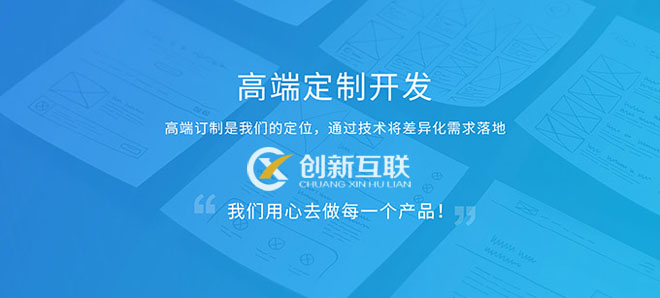扫二维码与项目经理沟通
我们在微信上24小时期待你的声音
解答本文疑问/技术咨询/运营咨询/技术建议/互联网交流
这篇文章主要介绍“redux在react中如何用”的相关知识,小编通过实际案例向大家展示操作过程,操作方法简单快捷,实用性强,希望这篇“redux在react中如何用”文章能帮助大家解决问题。

成都创新互联公司是一家专注于网站建设、成都做网站与策划设计,榆阳网站建设哪家好?成都创新互联公司做网站,专注于网站建设10多年,网设计领域的专业建站公司;建站业务涵盖:榆阳等地区。榆阳做网站价格咨询:18980820575
Redux是一个数据状态管理插件,当使用React或是vue开发组件化的SPA程序时,组件之间共享信息是一个非常大的问题。例如,用户登陆之后客户端会存储用户信息(ID,头像等),而系统的很多组件都会用到这些信息,当使用这些信息的时候,每次都重新获取一遍,这样会非常的麻烦,因此每个系统都需要一个管理多组件使用的公共信息的功能,这就是redux的作用。
如果你是从来没有接触过redux的开发者,希望您能够有耐心的看一看,我也是看好很多博客慢慢自己总结的!!!!比大佬们一个一个分布找要强一点。
import React, { Component, Fragment } from 'react';
//Class引入
import { connect } from 'react-redux';
//Hook引入
import { useSelector, useDispatch } from 'react-redux'
import { add, clear } from '../../redux/actions/count';
//hook 展示组件
const CountItem = (props) => {
// 解构出来
const {
count,
flag,
add,
clear
} = props
return (
<>
当前求和为:{count}
当前Flag:{flag ? 'true' : 'false'}
点击+1
清零
)
}
//hook 容器组件
const Count = () => {
const count = useSelector(state => state.sum)
const flag = useSelector(state => state.flag)
const dispatch = useDispatch()
const countAdd = () => {
console.log(add.type)
dispatch(add(1))
}
const clearNum = () => {
dispatch(clear())
}
return
// 当前求和为:{this.props.count}
// 当前Flag:{this.props.flag ? 'true' : 'false'}
// 点击+1
// 清零
//
// );
// }
// }
// class 容器组件
// export default connect(
// // 1.状态
// state => ({ count: state.sum, flag: state.flagState }),
// // 2.方法
// { add, clear }
// )(Count); 基本的使用差不多就是这个样子,我们在hook上面用到的关键方法就是useSelector来使用redux的state、用dispatch来调用reduce;在class组件中用connect进行state和方法(reduce)的关联。
这里面难点就在于reduce和state
这里的reduce是什么
上面的代码里面我们用到了add和clear这两个方法,我们新建一个js文件来实现这两个方法。
// 为Count组件创建action对象
// 引入常量
import { ADD, CLEAR } from '../constant';
// 创建加一action对象的函数
export const add = data => ({
type: ADD,
data,
});
// 创建清零action对象的函数
export const clear = data => ({
type: CLEAR,
data,
});上面有常量----这是为了方便actionType的统一管理,创建对应的action对象有助于代码模块化。
贴上,自己建一个constant.js放进去
export const ADD = 'add'; export const CLEAR = 'clear';
到这里我们的action对象定义的差不多了,我们要进行reducer的管理了。也就是dispatch分发上面的action对象来实现state的更新
在reducer文件夹里面我们定义一个count.js
// 为Count组件创建一个reducer
// reducer接收两个参数:之前状态的preState,动作对象action
import { ADD, CLEAR } from '../constant.js';
// 设定初始状态
const initState = 0;
export default function addReducer(preState = initState, action) {
// 从action中获取type和data
const { type, data } = action;
// 根据type决定如何加工数据
switch (type) {
case ADD:
return preState + data;
case CLEAR:
return 0;
// 初始化动作
default:
return preState;
}
}上面的方法要通过dispatch来进行type的分发调用(强调加一)
到这里使用就完成了 接下来看配置redux到react项目中
这里就不要倒叙了,因为这里倒叙不合理。
这里关键的几个配置
store.js的配置和全局的store的使用
先看全局使用store
在你的根路由下面用Provider包裹App。
import React from 'react';
import ReactDOM from 'react-dom';
import App from './App.jsx';
import store from './redux/store';
import { Provider } from 'react-redux';
ReactDOM.render(
// Provider包裹App,目的:让App所有的后代容器组件都能接收到store
这里面有个redux/store.js 看代码
// 整个文档只有一个store对象,createStore接收两个参数,第一个是state树,第二个是要处理的action
//applyMiddleware 汇总所有的中间件变成一个数组依次执行,异步处理
import { createStore, applyMiddleware } from 'redux';
//中间件
import thunk from 'redux-thunk';
//汇总所有的reducer
import allReducers from './reducers/index';
//这里是goole的调试调试工具,具体使用:百度
import { composeWithDevTools } from 'redux-devtools-extension';
// 暴露store
export default createStore(allReducers, composeWithDevTools(applyMiddleware(thunk)));关于“redux在react中如何用”的内容就介绍到这里了,感谢大家的阅读。如果想了解更多行业相关的知识,可以关注创新互联行业资讯频道,小编每天都会为大家更新不同的知识点。

我们在微信上24小时期待你的声音
解答本文疑问/技术咨询/运营咨询/技术建议/互联网交流